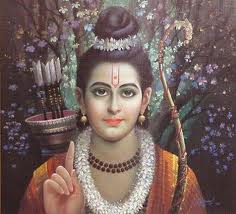Battle Against Ayurveda is a Fight for Our Survival
The Case against Patanjali by Indian Medical Association and the tone of Judiciary is alarming. We need to look into its historical and global context to fully grasp its ramification.

Ram Navami – the birth of Lord Ram is coming this week. To commemorate his birth, at the regular Chinmaya Mission Satsang, the lecture was based on a passage (Verses with Doha # 43) from Uttara kand of Ram Charit Manas. The scene is that Lord Ram is back from his exile of 14 years. He has won over many enemies and even brought his wife back after a fight. The entire city has welcomed him and now as he settles into his role as the ruler, one day he calls everyone to address them.
Interestingly, the address is not about what he wants from them, but what he wants for them! And this address, as I listened to the Acharyaji today, reminded me of all the qualities of a Leader and a Ruler.
एक बार रघुनाथ बोलाए। गुर द्विज पुरबासी सब आए॥
बैठे गुर मुनि अरु द्विज सज्जन। बोले बचन भगत भव भंजन॥
सनहु सकल पुरजन मम बानी। कहउँ न कछु ममता उर आनी॥
नहिं अनीति नहिं कछु प्रभुताई। सुनहु करहु जो तुम्हहि सोहाई॥
सोइ सेवक प्रियतम मम सोई। मम अनुसासन मानै जोई॥
जौं अनीति कछु भाषौं भाई। तौं मोहि बरजहु भय बिसराई॥
बड़ें भाग मानुष तनु पावा। सुर दुर्लभ सब ग्रंथिन्ह गावा॥
साधन धाम मोच्छ कर द्वारा। पाइ न जेहिं परलोक सँवारा॥
Once Ram called everyone to his Palace. Everyone including the Gurus, and the other citizens came. When all – the Guru (Sage Vashisht), Munis (Other Sages), and other good people were seated, Ram spoke words that could destroy the very being (acquisitive) of one.
He addressed the entire citizens in the entire assembly and requested them to listen to him. “I am not saying this to you simply because of my love because you are mine, or because I have power (प्रभुताई) over you or will say anything that is against prudence or wisdom (अनीति). I just request you to just listen to me, but do that, which pleases you or you find workable. Though, the closest devotee to me is one who works acknowledges the precepts and discipline that I am discussing.”
“But if you do feel”, he continued “that I have said something that is not prudent or correct behavior, please feel free to stop or challenge me without fear”. Having said that, he continued “WIth great fortune, you have got this human body. It is a very rare state, so say all the scriptures. It is the best tool to find the gate to Moksha – or liberation. By getting here you have a possibility to improve your life beyond this one.”
दोहा- सो परत्र दुख पावइ सिर धुनि धुनि पछिताइ।
कालहि कर्महि ईस्वरहि मिथ्या दोष लगाइ॥४३॥
“One who experiences the sorrow from this life, ultimately regrets by hitting on his head again and again. At that time, he unnecessarily blames everything – the time (being not right), the Karmas (the old Karmas not manifesting correctly), God (being unkind or unjust).” (The truth is that one is responsible himself for the misfortune).
What are the lessons that just this one passage teachesabout what a ruler ought to be like.
Every Sunday AM (US Time)/ PM (India time), we send out a weekly detailed newsletter. We also share other insightful notes during the week. Its free. Do sign up and share with friends!